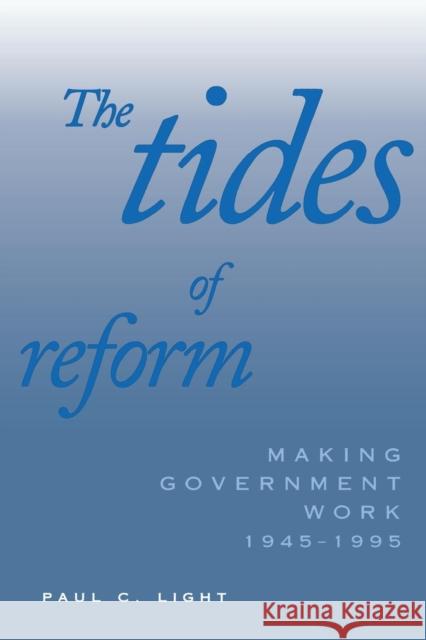Tides of Reform: Making Government Work, 1945-1995 (Revised) » książka
Tides of Reform: Making Government Work, 1945-1995 (Revised)
ISBN-13: 9780300076578 / Angielski / Miękka / 1998 / 304 str.
During the past fifty years, the Congresses and presidents of the United States have made many efforts to improve the performance of the federal government. In this book, a leading expert in public management examines the most important reform statutes passed and concludes that the problem is not too little reform but too much.
Paul Light explains that Congress and the presidency have never decided whether they trust government and its employees to do their jobs well, and so they have moved back and forth over the decades between four reform philosophies: scientific management, war on waste, watchful eye, and liberation management. These four philosophies, argues Light, operate with different goals, implementation strategies, and impacts. Yet reform initiatives draw on one or another of them almost at random, often canceling out the potential benefits of a particular statute by passing a contradictory statute soon afterward. Light shows that as the public has become increasingly distrustful of government, the reform agenda has favored the war on waste and watchful eye. He analyzes the consequences of these changes for the overall performance of government and offers policy recommendations for future reform approaches.











